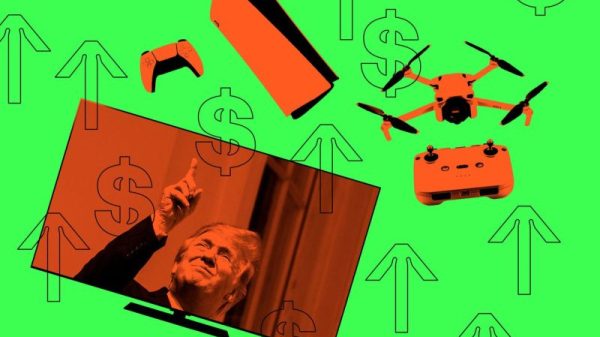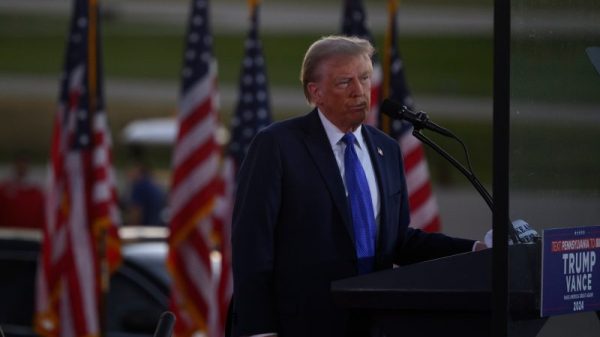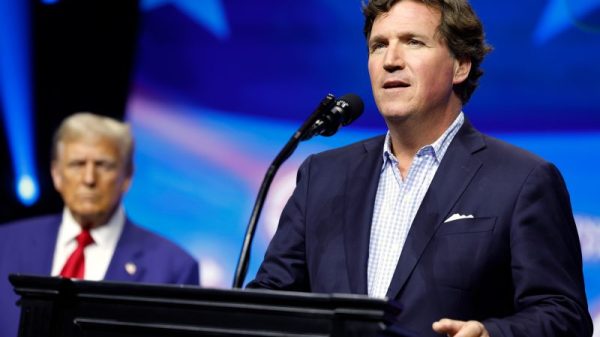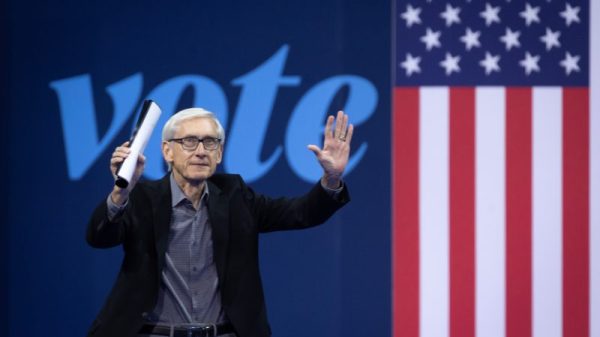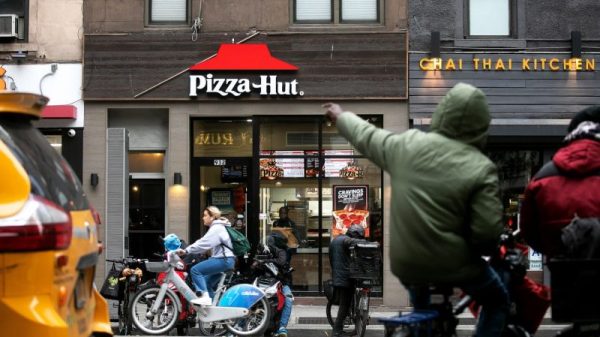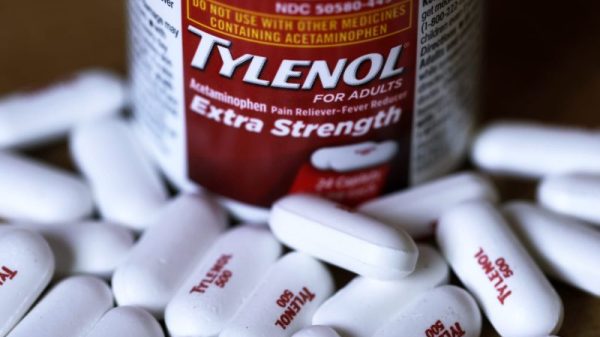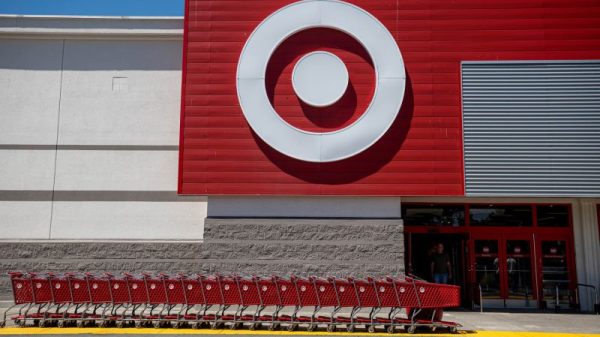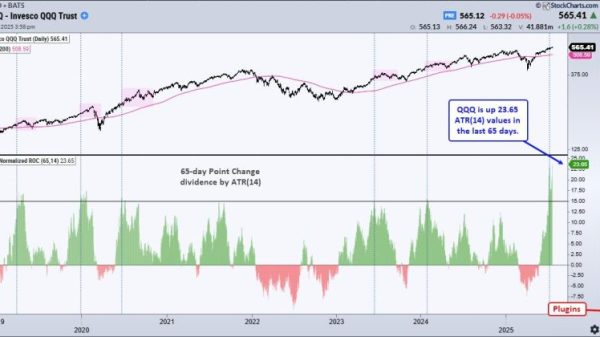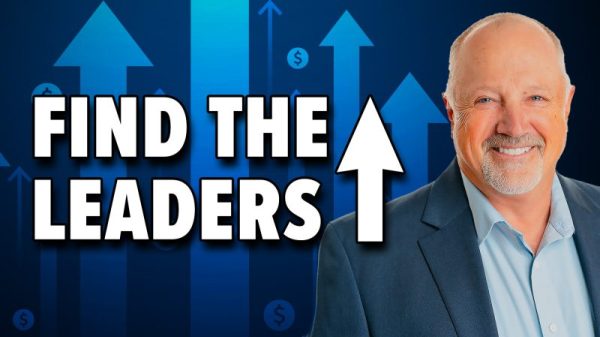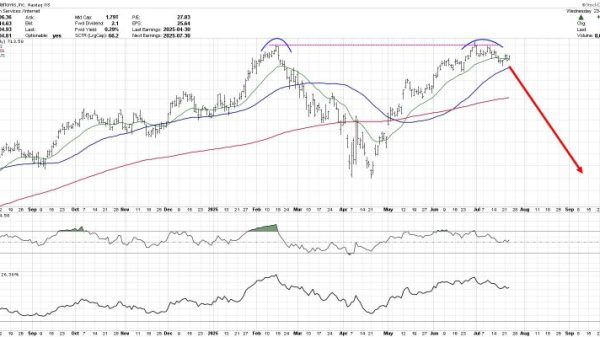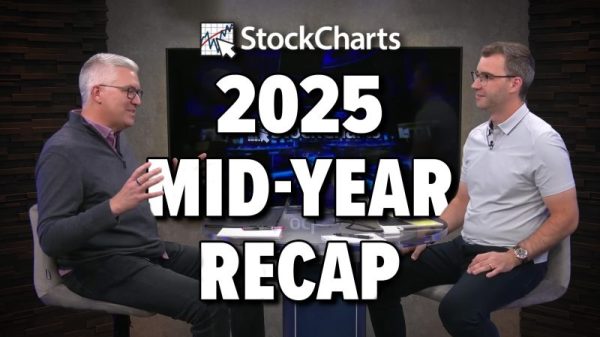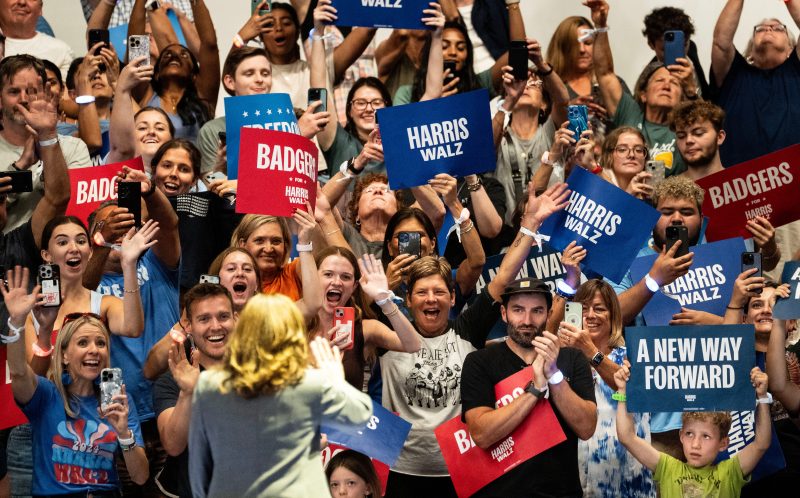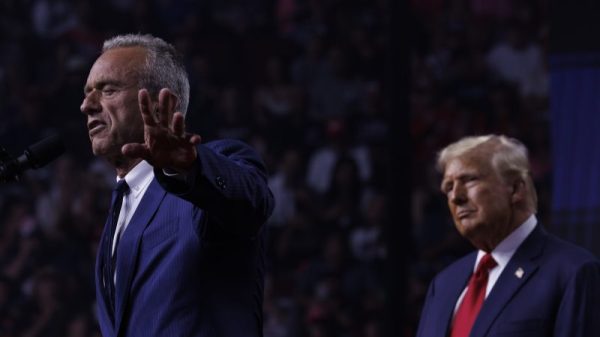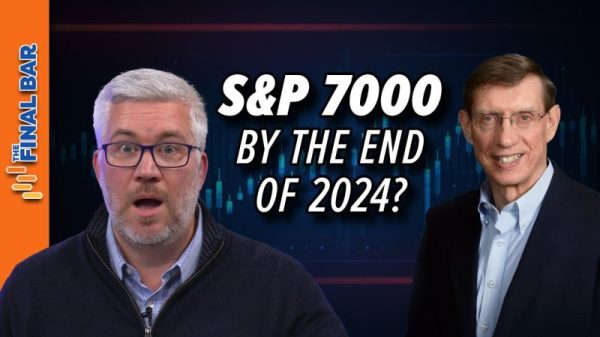Shortly after Kamala Harris took control of Joe Biden’s campaign, her top advisers began holding senior staff meetings unlike any that had happened before.
New strategists appeared on Zoom calls with the Wilmington brass, and a transformed decision-making process took over. The competing power centers that had defined Biden’s world — a headquarters staff, a White House operation and a coterie of Biden loyalists who operated with one foot outside both structures — had been flattened into a single high council, reporting to a single boss, campaign chair Jen O’Malley Dillon, who spoke most days with the candidate.
Harris blessed the unified structure, giving O’Malley Dillon the power to hire and direct a new layer of top talent from Barack Obama’s and Hillary Clinton’s campaigns for president. The vice president also gave marching orders: I don’t care where you are coming from, she told the new team, according to a person familiar with the statements. We don’t have time for drama. We will just do what we need to do.
In short order, the Democratic presidential campaign, almost entirely inherited from Biden, found a new direction. The four-person polling team that had toiled in the mid-tier of the Biden operation — sometimes unaware of ads until they were released — suddenly found themselves invited to the senior Zoom calls. The new leadership wanted to hear more directly about the data and they wanted more testing of ads before they went out. The new ad-makers jettisoned the president’s focus on defending democratic institutions or any discussion of abstract American ideals represented by waving flags.
A wholesale embrace of economic anxiety and rising costs took over. “A New Way Forward” replaced Biden’s slogan “Finish the Job.” Harris pushed out new policies to respond to inflation, driving home the message that she was different. The talk about “Bidenomics” success turned into a discussion of the new “opportunity economy.” “We’re not going back” chants became common at her rallies.
Like Biden, she would sell herself as a child of the middle class, more stable and empathetic than Donald Trump, who she argued had become more dangerous, deteriorated and unhinged since leaving office in 2020. Like Biden, she avoided most opportunities for unscripted exchanges or formal press interviews that could lead to blunders, distract from her message and fuel Trump’s attacks.
But unlike Biden — who was universally known and had been campaigning for years — the new team decided early on that they would need to make their decisions in the context of a singular problem that defined their campaign: the ticking clock.
As of late June, less than a third of voters in a CNN poll viewed her favorably, with 16 percent saying they had no opinion or had never heard of her. By the time the new team came into place in early August, she had just over 90 days to go.
Trump was on the attack, hoping to define her with his own research that showed major doubts about whether she was a serious leader who could handle the job. The former president’s West Palm Beach crew had cut clips of her dancing in a glittery rainbow jacket into their ads and blasted out montages of Harris guffaws to drive home the point. She needed to beat Trump to the punch.
“We have a new top-line imperative. We have a new candidate that people want to know more about. The data shows that the more that they see her, the more they like her,” explained one person involved in the effort. “Trump has a ceiling. The more that we can present the clear choice to people, the better off our campaign is.”
This account of how Harris restructured Biden’s campaign team and transformed the Democratic ticket is based on interviews with eight officials directly familiar with the operation, almost all of whom spoke on the condition of anonymity to describe internal operations because the campaign sees little upside in what one called “process stories.”
With 38 days until Election Day, there is still no certainty of the outcome, but Democratic presidential campaign veterans have been universally pleased with her progress. With Democrats spending roughly twice as much as Republicans in presidential advertising, Harris has retaken a slight edge in public polling of the northern battleground states, while narrowing her deficit in the southern ones.
An average of high-quality national public polls shows that Harris has cut Trump’s advantage on economic issues in half, or by six points. Her favorability rating in CNN polling has risen from 32 to 45 percent. While both Trump and Biden were effectively tied on the question of who voters trust more to unite the country, Harris now leads Trump by 11 points.
“They are undertaking an extraordinary feat — essentially retrofitting a campaign in midair 90 days before Election Day with a new candidate,” said David Axelrod, the top strategist for both of Obama’s presidential campaigns. “When you consider the enormity of that, and the quality of the convention, the debate and the gap they’ve closed, it’s been really impressive.”
The biggest changes have had to do with the candidates. Biden’s reelection campaign had been built to serve him. As with Trump, physical proximity mattered enormously. The two principal architects of the reelection effort, top strategist Mike Donilon and O’Malley Dillon, had waited until February to leave their White House jobs in the face of pressure from the party. Even after they left they leased an office a few blocks away so they could work close to the boss.
Donilon had largely authored the story of Biden’s 2020 campaign for president — a quest that was billed around transcendent ideas of “restoring the soul of America” and the candidate’s basic decency. As the reelection campaign took shape, his brief was again enormous. Not only did he oversee the polling operation, but he had complete responsibility for the main television advertising program and the macro-messaging theory of the campaign.
When Biden dropped out of the race, Donilon departed as well, leaving a massive hole in the operation that had been coordinated in senior adviser calls from Wilmington and the White House. O’Malley Dillon, who had been working for Democratic presidential campaigns since Al Gore in 2000, turned to a crew of top strategists from the two Obama campaigns.
Stephanie Cutter, her former business partner who had been doing media training with Harris while overseeing convention planning, came in as a strategist. So did David Plouffe, Obama’s former campaign manager, who took the title “Senior Advisor for Path to 270 and Strategy.” O’Malley Dillon also elevated Mitch Stewart, the field wizard of Obama’s operations, and two new ad-makers, Adam Magnus and Ann Liston.
The new operation was unconventional in that Donilon’s duties were being dispersed. No single strategist with command and control over the operation was replacing him. But the bet was that more voices in key meetings, including the addition of the polling team, would lead to better decisions, not disarray. Multiple people described the senior team — stocked with Biden veterans and newbies — who are now in constant contact with each other through a private messaging app, with periodic strategy meetings to assess the state of the race. The early leaks about tensions between Obama operatives and the Biden team have all but dried up.
Lorraine Voles and Sheila Nix, Harris’s White House and campaign chiefs of staff, respectively, continued to work directly with Harris and the senior team. In contrast to her 2020 campaign, Harris’s family largely supported her at a distance from the campaign operation, with brother-in-law Tony West appearing at some debate prep sessions.
“In a very brief amount of time, the roles have become clear and the mentality has flowed from the top. Jen runs a meeting like nobody else that I have ever encountered,” Harris adviser Brian Fallon, a former Clinton aide who joins the new senior strategist Zoom calls, said in a recent Politico podcast appearance. “She is somebody that does not suffer fools and that is a credit to her.”
The early Harris ads speak to the shift. Biden had leaned heavily on a personal contrast with his opponent, casting Trump as a legal defendant, would-be dictator and midnight social media poster in his ads. His references to the Jan. 6, 2021, attack on the U.S. Capitol and the threat to democracy have largely dropped out of Harris’s ads. In place of that, she speaks more about lowering costs and attacks Trump as “out of control” with an extreme policy agenda, particularly around economic issues.
“His plans will raise costs and taxes on the vast majority of Americans,” one spot says, referring to his plans for higher tariffs to encourage domestic manufacturing.
Harris’s coordinated campaign raised $540 million in its first month, giving the new team significant firepower to try to move the electorate in the coming weeks. But a primary data finding of the Biden campaign’s 2023 research still holds: The election, Wilmington believes, will be decided in a few states by narrow margins, probably hinging on a sliver of voters who were repelled by a Biden-Trump contest and remain disengaged from the daily political news.
And the clock is ticking.


